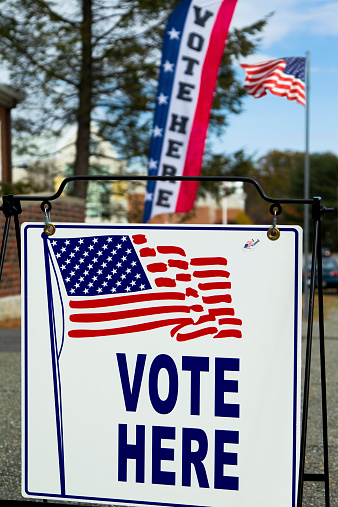Free Consultation
Available 24/7 for Immediate Help
(614) 263-5297
 The "Responsible Ohio" Amendment and Legalizing Marijuana in Ohio
The "Responsible Ohio" Amendment and Legalizing Marijuana in OhioOn November 3, Ohio voters are set to vote on Issue 3, put on the ballot by pro-marijuana group Responsible Ohio as a citizen initiative. Issue 3 would legalize limited cultivation, production, sale, and use of marijuana in Ohio.
The measure would create a regulatory commission, the Ohio Marijuana Control Commission (OMCC), to regulate industrial and homegrown marijuana growth, production, and extraction; chemical content of marijuana products; retail sales of marijuana products; and marijuana taxation. The governor will appoint seven Ohio residents of various occupations to serve on the Commission.
Homegrown: Anyone who is at least 21 years old, upon purchasing a license from the Ohio Marijuana Control Commission, may use, possess, grow, cultivate, and share a maximum of 8 ounces of marijuana and four flowering marijuana plants.
General use: Anyone who is at least 21 years old may purchase, possess, transport, use, and share a maximum of 1 ounce of marijuana.
Medical Use: Anyone with a certified debilitating medical condition may use marijuana.
Commercial production: The proposed measure would allow for 10 Marijuana Growth, Cultivation and Extraction (MGCE) production facilities to be built around Ohio. Each facility would be independently owned and run independently to prevent collusion per the Sherman Antitrust Act. The measure would legalize production of edibles, ointments, concentrates, tinctures, and sprays.
Retail sales: No one involved in growing the plants could sell directly to the public. The group of facilities would have exclusive rights to marijuana production. Employees would be allowed to unionize and collectively bargain. Retail sellers would only be able to sell marijuana sourced from one of the 10 MGCE facilities and sell at prices no lower than what they paid the facilities. The measure also places limits on where marijuana establishments may be located.
Concerned that Issue 3 would create a monopoly over marijuana production, the Ohio Legislature put Issue 2 on the ballot. Issue 2 would amend the Ohio Constitution, allowing the Ohio Ballot Board to regulate initiatives regarding monopolies. What Issue 2 is effectively meant to do is to prevent Issue 3 from taking effect in the event both measures pass.
It is not entirely clear which Issue would trump the other. A provision in the Ohio Constitution says that if there are conflicting ballot initiatives, the one with the most votes wins. However, the Ohio Constitution also says that a legislatively introduced measure would go into effect first, not a citizen initiative. So which of these rules would take precedence if 2 and 3 both pass: the number of votes, or when it takes effect? In my opinion, the legislature should not be able to trump a citizen initiative. The power belongs first to the people.
Is it a fair criticism to say Issue 3 would create a monopoly? Not really. Let’s discuss why:
 The system that Issue 2 would create is more properly termed an oligopoly, not a monopoly. Most economic sources define a monopoly as a single supplier, unhampered by rivals, that supplies a product for which there is no close substitute. A cartel can be a group of firms, but it has the distinct feature of "overt collusion." An oligopoly refers to a very limited number of firms that supplies a product, where the market is difficult to break into, and where each rival recognizes its actions will affect the others.
The system that Issue 2 would create is more properly termed an oligopoly, not a monopoly. Most economic sources define a monopoly as a single supplier, unhampered by rivals, that supplies a product for which there is no close substitute. A cartel can be a group of firms, but it has the distinct feature of "overt collusion." An oligopoly refers to a very limited number of firms that supplies a product, where the market is difficult to break into, and where each rival recognizes its actions will affect the others.
The system that Issue 3 creates is best termed an oligopoly. Issue 3 does not create one sole supplier, as in a monopoly, but 10. The market would be difficult to break into at first aside from these 10, but not impossible — other facilities could be added later if demand outstrips supply. And, since each of the facilities is independently run and owned by separate LLCs made up of investors, they know they will be competing against each other in terms of price and quality. The amendment mentions compliance with federal law, which includes the Sherman Antitrust Act prohibiting collusion and monopolies. The amendment is not structured to produce a collusive system where competition is destroyed, so it is not best-termed a monopoly and certainly not a cartel.
There are many existing ways in which other activities are highly regulated by the government, and marijuana should be treated no different. I view this issue in light of the provisions already in the constitution mandating the building of casinos. When that went on the ballot, the legislature didn't do anything to stop it. Moreover, the Ohio government has a monopoly on liquor sales and the Ohio Lottery.
Even if everyone agreed (and they don’t) that Issue 3 is proposing a monopoly on weed, to come in now and try to ban monopolies on weed—but not casinos, liquor sales, or the lottery—is hypocritical. Vote yes on 3 and no on 2.
George M. Wolfe has worked as a respected Columbus Ohio lawyer for over 20 years, handling cases in over 30 counties in Ohio and several States. Attorney Wolfe's extensive experience means excellent attorney services for his clients. Contact Wolfe Legal Services if you have been charged with a marijuana-related offense or have questions about marijuana law in Ohio.
© 2024 Wolfe Legal Services
View Our Terms & Conditions | Privacy Policy
Website Maintained and Hosted by Adamedia & Adam The Computer Guy